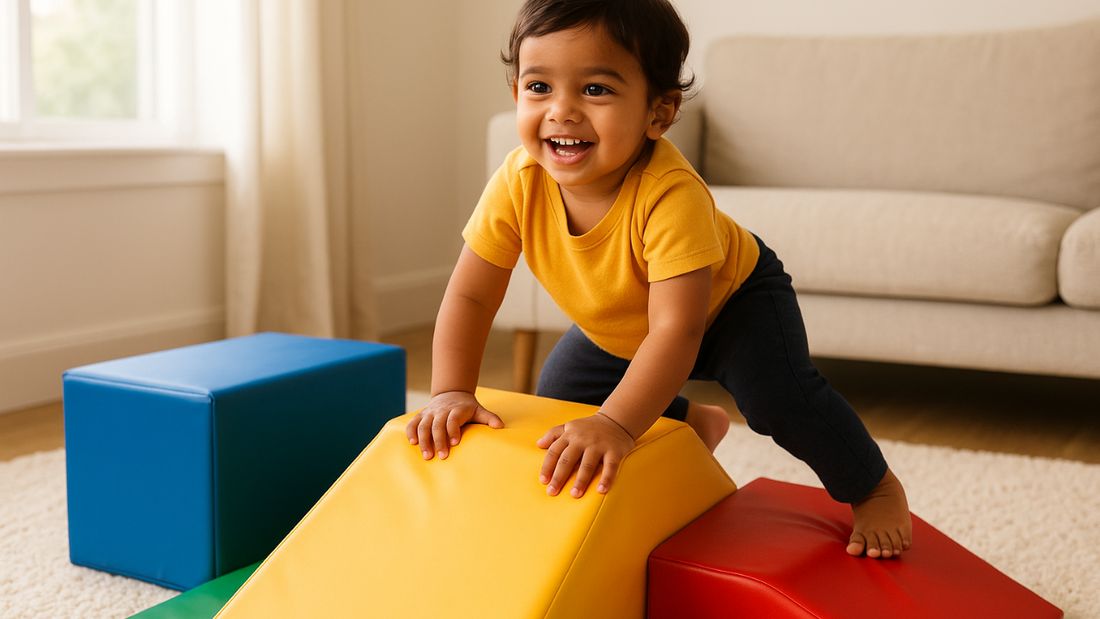
Gross Motor Growth: Everyday Activities That Strengthen Big Movements
LiLLBUDGross motor skills are the building blocks of a child's physical confidence. They are the utilization of large muscle groups in the legs, arms, and torso that enable children to sit, crawl, walk, run, jump, and climb. Improved gross motor skills promote coordination, endurance, and even concentration in learning, beyond movement itself.
To boost these skills, you just need to stick to daily routines, exploring the outdoors, and engaging in creative play can really help.
Why Gross Motor Skills Are Essential
- Encourage Independence: From ascending stairs to dressing themselves, robust gross motor skills enable children to do for themselves.
- Boost Cognitive Development: Movement is linked to brain growth; active play enhances attention and problem-solving.
- Encourage Social Interaction: Playing group games and having fun on the playground helps kids learn about teamwork and builds their confidence.
-
Lay the Groundwork for Fine Motor Skills: Pre-writing, drawing, scribbling, and other fine motor tasks can be made easier by stable posture and core strength.
Everyday Activities to Boost Gross Motor Development
1. Nature Walk Explorations
Take your child outdoors and let them walk on grass, sand, or uneven surfaces. Encourage climbing over rocks, jumping over puddles, or balancing on fallen logs. Such varieties in play naturally strengthen coordination and stability.
2. Push & Pull Play
Toys like wagons, push carts, or even helping carry a small grocery bag build strength and control. These activities also reinforce balance and teach kids about body force.
3. Dance & Movement Rhymes
Simple songs such as "Ring Around the Rosie" or "Head, Shoulders, Knees, and Toes" use rhythm, balance, and body awareness—all in fun.
4. Chasing Bubbles
Blowing bubbles and encouraging kids to chase, jump, and pop them is a playful way to improve reaction time, running speed, and hand-eye coordination.
5. Climbing Opportunities
Create safe climbing opportunities, such as jungle gyms, playground ladders, or even climbing cushions at home. Climbing builds upper and lower body strength, spatial awareness, and problem-solving.
6. Wheel Play
To enhance leg strength and coordination use riding tricycles, scooters, and balance bikes. Even pulling themselves along on ride-on toys helps core development.
7. Pretend Play with Movement
Encourage role-play that involves big actions, pretend to be superheroes flying, firefighters crawling, or astronauts jumping on the moon. Exercises or movements can be fun when paired with imaginative play.
Tips for Parents
- Mix things up: try alternating between indoor and outdoor play to keep it interesting.
- To help with balance and strengthen foot muscles, encourage playing barefoot on safe surfaces.
- Focus on effort rather than just results; this helps kids feel more confident.
-
Get involved—this not only supports their development but also helps you create great memories together.
Nurturing Movement, Nurturing Growth
Gross motor development is not about drills; it's about taking everyday moments and using them as opportunities. When kids climb, jump, balance, and run, they're not just getting physical exercises; they are also building confidence, strength, and coordination that they'll use forever.

